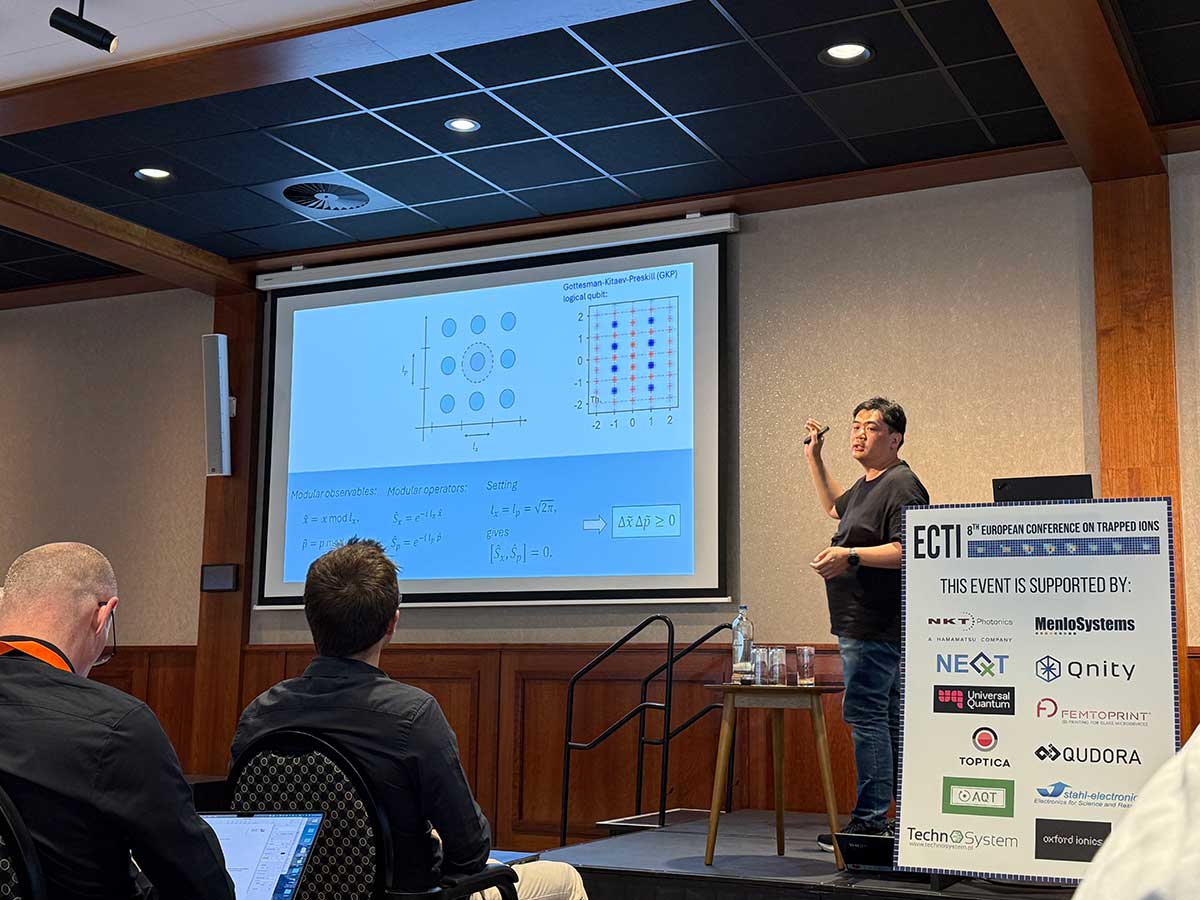From fundamental science to quantum technology
We focus on addressing the most challenging problems in our understanding of quantum physics and leveraging these insights to build new technologies.
Our activities range from foundational quantum physics through to technological developments in atomic and condensed matter systems. Our scientific work is complemented by deep engagement with industry and entrepreneurship.
Our work is supported by the ARC Centre of Excellence for Engineered Quantum Systems, the Sydney Quantum Academy, and FLiQC. We partner with high-profile international research programs in Quantum Information Science sponsored by the US Army Research Office, IARPA, and other domestic and international defence agencies. We are also deeply connected with industrial efforts in quantum technology including collaborations with Google, IBM, PsiQuantum, Q-CTRL, Iceberg Quantum, and Emergence Quantum.
The University of Sydney has played a key role in accelerating the Australian quantum ecosystem including through Australia’s National Quantum Strategy, and in establishing the Sydney Quantum Academy, Quantum Australia and the ARC Industrial Transformation Training Centre for Future Leaders in Quantum Computing (FLiQC).
Our aims
The field of quantum science aims to push the boundaries of our understanding of quantum mechanics and to develop powerful new technologies based on the unique properties of quantum systems. Our group undertakes experimental and theoretical research in quantum science that addresses both aims.
We engineer and manipulate complex quantum systems and explore solutions at both the hardware and software levels. We develop a fundamental understanding of quantum systems by incorporating insights from quantum computing, quantum error correction, and all other aspects of quantum information science.
At this time, a variety of technology platforms have demonstrated large scale quantum technologies. Our four experimental programs span leading systems: trapped atomic ions, rare-earth ions in crystals, superconducting circuits, and spins in semiconductors. These efforts, while distinct, share complementary control techniques and are unified by platform-independent theoretical research in support of the group’s broad interests in quantum science.
Our theoretical research tackles the `big questions’ in quantum science. Our research program in Quantum Information Theory explores the full spectrum of questions from the foundational, such as ‘How does complex behaviour emerge from simple quantum systems?’ and ‘Is there a physical reality that explains the strange quantum properties like Bell nonlocality?’, to the practical, including ‘How can we harness the exotic properties of quantum physics, such as quantum error correcting codes, to design new technologies like quantum computers?’.
The research program we have built represents a unique strength of the Quantum Science group at Sydney: a highly integrated effort of leading researchers in both quantum optical/atomic physics and condensed-matter physics, theory and experiment.
Latest News
-

Driving innovation in quantum technologies: QCL’s impact at ECTI 2025
—
The Quantum Control Laboratory (QCL) showcased its pioneering research in quantum control and quantum technologies at the 8th European Conference on Trapped Ions (ECTI), held in the Netherlands in September […]
-

From the Pilbara to Campus: Inspiring the Next Generation of Scientists
—
In early August, three members of the Quantum Science Group – Dr Cyril Laplane and PhD students Maverick Millican and Yuktee Gupta – packed their bags and embarked on a […]
-

Quantum Theory Group showcases research excellence at QEC25
—
In August 2025, members of the Quantum Theory Group participated in the 7th International Conference on Quantum Error Correction (QEC25) — a major biennial event focused on advances in both […]
Our Research
Learn more about our research
Our People
Meet the members of the
Quantum Science Group
What’s On
View conferences and events






